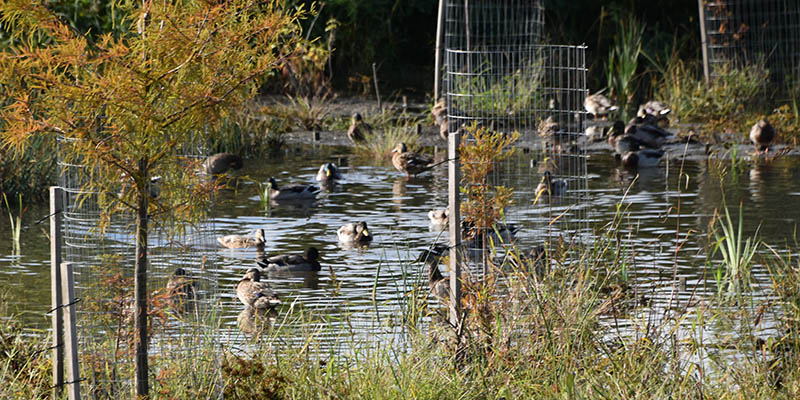
The project to restore 2.75 acres of wetland at Springbrook Gardens Park was successfully completed in the Summer of 2020. Prior to construction, the site had a deep, channelized stream with no floodplain access and limited wildlife habitat. Now the park is home to a biologically diverse natural stream and wetland ecosystem.
To accomplish the restoration, the City widened the existing stream channel and installed sand seepage berms. Sand seepage berms, similar in concept to beaver dams, are mounds made of sandy soil mixed with wood chips that help spread stormwater into the floodplain and filter pollutants. The existing sandy soil at the site made the berms an ideal approach for this project. Native plants were installed along the streambank and throughout the wetland area. The restoration will now allow sediment and other pollutants to be filtered from the water before entering Marsh Creek, slow down stormwater flows, and help alleviate downstream flooding while improving aquatic habitat.
The City, in partnership with Chagrin River Watershed Partners and Lake County Soil and Water Conservation District, was awarded $264,136 in funding from the Ohio Environmental Protection Agency Section 319 grant program and $176,091 was provided as match by the City for the project. The City contracted Biohabitats, Inc. and Meadville Land Service, Inc., a design-build team of environmental scientists, engineers, and contractors, to complete the restoration work.
Through this project 2.75 acres of native riparian and wetland plant species were planted, and 2.25 acres of wetland were reconnected to the stream. Walking paths were installed throughout the wetland to provide public engagement and education opportunities for students.
